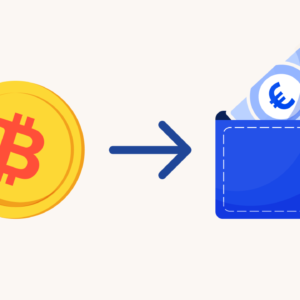Question
Can you provide guidance on portion control and strategies for avoiding overeating?
Can you provide guidance on portion control and strategies for avoiding overeating?
21 Day Rapid Weight Loss Program
**Mastering Portion Control and Overeating: A Guide to Sustainable Weight Management**
Embarking on a journey towards weight loss involves not just what you eat but also how much you consume. Portion control and strategies to avoid overeating are key components of a successful and sustainable weight loss plan. Here, we explore practical tips to help you manage portion sizes and develop mindful eating habits.
**1. Be Mindful of Serving Sizes:**
Understanding appropriate serving sizes is fundamental to portion control. Use measuring cups, a food scale, or visual cues to gauge portions accurately. This awareness can prevent unintentional overeating.
**2. Use Smaller Plates and Bowls:**
Trick your mind into feeling satisfied by opting for smaller plates and bowls. This simple strategy creates the perception of a fuller plate, helping control portion sizes without triggering feelings of deprivation.
**3. Listen to Hunger and Fullness Cues:**
Pay attention to your body’s signals. Eat when you’re hungry and stop when you’re satisfied, not overly full. Being attuned to hunger and fullness cues promotes a healthier relationship with food.
**4. Eat Slowly and Chew Thoroughly:**
Savoring each bite and eating slowly allows your body to register fullness more effectively. Chew your food thoroughly to enhance digestion and give your brain time to recognize satiety.
**5. Hydrate Before Meals:**
Start your meals with a glass of water. Sometimes, what we perceive as hunger is actually a sign of dehydration. Staying adequately hydrated can help prevent overeating.
**6. Avoid Distractions During Meals:**
Minimize distractions like television or electronic devices during meals. Mindful eating encourages a connection with your food, reducing the likelihood of mindless overeating.
**7. Plan and Prepare Meals in Advance:**
Planning and preparing meals in advance can help you make informed choices and avoid impulsive, oversized portions. Having healthy options readily available supports portion control.
**8. Use the Plate Method:**
Divide your plate into sections: half for vegetables, a quarter for lean protein, and a quarter for whole grains. This visual guide promotes balanced and satisfying meals, aiding in portion control.
**9. Be Conscious of Liquid Calories:**
Watch your intake of sugary beverages and high-calorie drinks. Liquid calories can contribute significantly to your overall energy intake, impacting your weight loss efforts.
**10. Practice Portion Control at Restaurants:**
When dining out, resist the temptation to indulge in oversized portions. Consider sharing entrees or requesting a to-go container to split the meal before you start eating.
**11. Avoid “Super-sizing” and Buffets:**
Refuse the allure of larger portions or all-you-can-eat buffets. Such environments can lead to overconsumption, hindering your progress toward sustainable weight management.
**12. Use Healthy Snacking Strategies:**
Pre-portion snacks into small containers to avoid mindless grazing. Opt for nutrient-dense snacks like fruits, vegetables, or a handful of nuts to satisfy cravings without overindulging.
**13. Assess Emotional Eating Triggers:**
Be aware of emotional eating triggers and find alternative coping mechanisms for stress, boredom, or other emotions. Breaking the cycle of emotional eating supports long-term weight management.
**14. Keep a Food Journal:**
Logging your meals and snacks in a food journal increases awareness of your eating habits. This tool can help identify patterns of overeating and areas for improvement in your approach to portion control.
**15. Seek Support and Accountability:**
Share your weight loss goals with friends or family members who can provide support and encouragement. Having someone to be accountable to increases your likelihood of success.
21 Day Rapid Weight Loss Program
In conclusion, mastering portion control and avoiding overeating involves adopting mindful eating habits and making conscious choices. These strategies, combined with regular physical activity, form a comprehensive approach to achieving and maintaining a healthy weight. If you have specific dietary concerns or health conditions, consulting with a registered dietitian can provide personalized guidance on portion control tailored to your individual needs.
Check our Latest products!








